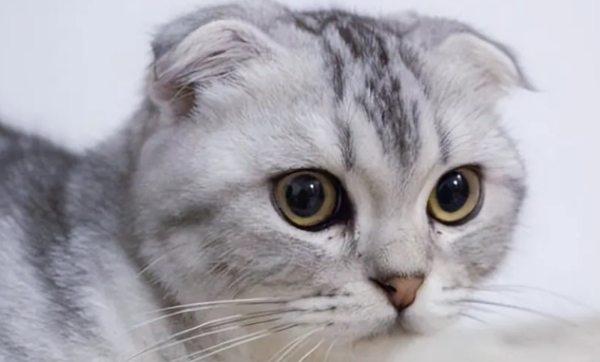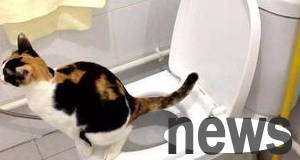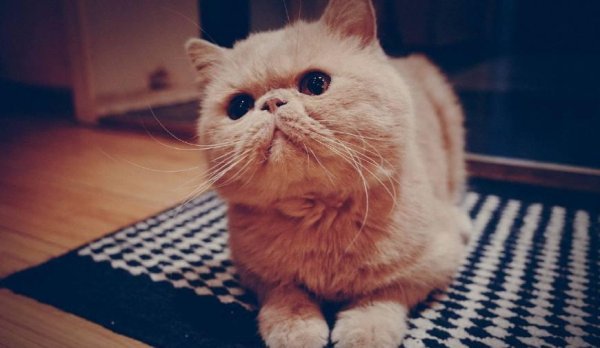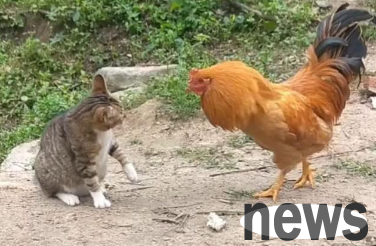What kind of mental illness are cats prone to? | The invisible killer of cats - mental illness
Recently, Nuomi was in estrus, so he sent the glutinous rice to someone else’s house for breeding. For a few days after Nuomi was sent away, Zongzi was like a child at home. He acted cute in front of people and begged to be touched every day. He was very happy and very close to people. But the good times did not last long. Within a few days, the glutinous rice came back. It was as if a switch had been flipped on the rice dumplings. They no longer acted cute in front of others. They spent more time sleeping every day, and their food intake dropped seriously. The amount of food they ate was only a quarter of the original amount, and their daily poop was only a little. For two or three days, as an old father, I was particularly worried. I was afraid that it was an oral ulcer or stomatitis, so I opened its mouth to take a closer look, and I actually saw an oral ulcer.
The unwell cat
was sent to the pet hospital on the same day for a careful examination by the doctor to see if it was oral ulcers or stomatitis. After all, these two problems are difficult to treat, and in severe cases, all the teeth in the mouth may even need to be extracted. But after careful inspection, nothing wrong was found, not even any inflammation... It is possible that I made a mistake at the time, and then I started a discussion with the doctor about why the cat had this problem, and then the doctor actually told me that the cat might be suffering from depression! ! !
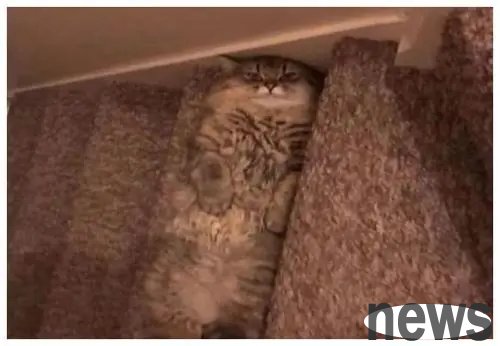
Can actually get mental illness
This is the first time I have heard that cats can get mental illness in such a long time, and some serious cases can even cause cats to die... Today we will learn about cat mental illness.
·Psychological diseases and causes that cats may suffer from
Most cats are relatively cold-blooded animals, but their own IQ is no lower than that of a 3 or 4 year old. Some smart cats can even reach the IQ of a 5 or 6 year old child. And because cats themselves are extremely slender animals with very delicate psychology, the probability of cats suffering from mental illness is still very high. The following are some of our common mental illnesses:
Anxious cats
1. Anxiety disorder
Symptoms of symptoms: hair loss, personality changes, hunger strikes, unexplained vomiting, a person silently dazed in a corner (not sleeping, eyes open but not moving)
Inducement: It mainly occurs when new members are added to the home, whether it is a new animal or a new child, which may induce this disease
Treatment methods: 1. Give the cat more attention, touch it more, and talk to it so that it no longer feels that its status has been reduced. 2. Give the cat an independent space and isolate it from the new members, but do not send the cat away, as that will aggravate the condition. If Method 1 and Method 2 do not show any improvement for about 4 days and the cat is still on hunger strike, then it must be sent to the doctor and hung up in a hanging bottle, because not eating for a long time will lead to diseases such as cirrhosis of the cat’s liver, which will ultimately threaten the cat’s life.
This is also the most common mental illness in cats. In fact, this disease can be prevented in advance in many cases: if you want to add a new cat or dog, then at least give the cat a 2-3 week running-in period to adapt. You can read my previous article to learn.
A scared cat hiding under a blanket
2. Environmental discomfort syndrome
Symptoms: abnormal hair loss; repeated licking of certain parts of the body, even if the hair has fallen out; vomiting; huddled in a corner
Inducements : There are major changes in the living environment, such as home decoration; frequent new residences
Treatment method: Prepare as many familiar items as possible in the environment, such as toys, cat bowls, cat litter boxes, etc., to increase the cat’s familiarity with the environment.
Not all cats will have obvious symptoms of this mental illness. Most cats will show a loss of appetite and hide in corners if they change to a new environment. Of course, if the symptoms are relieved in 1-2 days, the owner does not need to worry, but if the symptoms last for too long, such as 4-5 days, they need to go to the pet hospital as soon as possible for diagnosis and infusion to extend life.
A cat sleeping in a corner
3. Depression
Symptoms: decreased appetite; personality becomes more cold; vomiting;
Cause: Originally, pets were more dependent on their owners, but recently the owners have neglected their pets, causing the cats to think that they are not needed. They may even feel abandoned.
Treatment methods: Spend more time with the cat and play with it, which will generally improve in the short term.
Vomiting cats
Have you ever discovered that cats’ mental illnesses are characterized by loss of appetite and vomiting, but the triggers are different. Therefore, everyone must pay attention to the cat’s food intake, and it is best to adopt a regular and quantitative method to better observe the cat’s appetite. This is to prevent the cat from being unwell for a long time without noticing.
Sad Cat
So how to prevent mental illness in cats?
1. Play more with the cat and increase the cat’s amount of exercise. This can not only increase the intimacy with the cat, but also increase the cat’s physical health.
2. Provide some climbing space for cats. Cats will be in a better mood when they stay at high places.
3. Add some facilities that can attract the cat’s attention, such as placing an aquarium indoors and raising some fish to increase the cat’s visual stimulation.
Kittens that need our care
Cats are like children in our lives and need our care and attention. Most of the cats' psychological problems are caused by their owners' neglect. Therefore, spending more time with the cats at home will make them happier and less likely to get sick.




